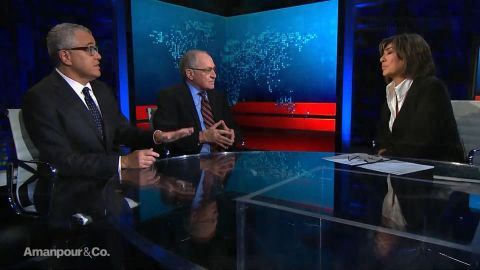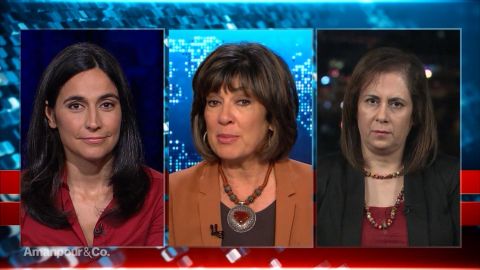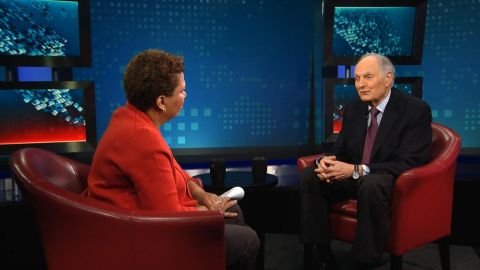Read Transcript EXPAND
CHRISTIANE AMANPOUR: Let’s talk about “Naila and the Uprising” because it brings up so many issues that go way beyond politics and really deserve being remembered at
this time.
So, first let me ask you, Julia. You chose to make this film through the eyes of a woman had a small son, husband, family at the time, and actually,
her interviews now are with her son sitting beside her. Why did you choose that vehicle?
JULIA BACHA, DIRECTOR, “NALIA AND THE UPRISING”: We wanted to tell the story of what happened during the First Intifada in the late ’80s to the
story of the people who had written out of their history, as so often, unfortunately happened in protest movements, where women played leading
roles and organization in the grassroots level, be it the civil rights movement here in the United States or other places historically. And then,
when you tell the story of those movements, you actually celebrate the man and you don’t give the credit to the women who actually often pay the
highest price in those movements.
AMANPOUR: You know, it’s interesting to use the word celebrate. I’m going to ask you, Rula, because this is actually key to understanding the whole
Israeli-Palestinian conflict.
It’s not necessarily just celebrating the man, although many of them are celebrated, but it’s the narrative that gets focused on the armed man, the
militant, you know, instead of on whoever, the women, the children, the unarmed men who actually have a human story and human resistance. How does
that sound to you?
RULA SALAMEH, PRODUCER, “NALIA AND THE UPRISING”: Most of the men and women we interviewed and we met with even before the film, they were
talking about how women were leading their community and were there on the front lines and they were doing really amazing job during the First
Intifada
And what was really interesting, the story, is the person on story is that women were bringing and sharing and talking about — most of the women and
men that we interviewed, they were talking about stories that we never, even in my community, heard about, how they were active inside the house,
outside the house with men in the street trying to be a part of the struggle against the occupation and trying working together next to men.
And nobody really highlight these stories, even my community.
AMANPOUR: And your community, of course, is the Palestinian community. And I just want to just sort of describe what some have said, that this
film and the resistance, the First Intifada, was almost like a double whammy. It was Palestinians against Israeli occupation but it was also
women against male patriarchy.
And it looks, certainly, from a lot of the things, you know, women who you interviewed, even the men, they say its kind of an opportunity for
equality.
About This Episode EXPAND
Christiane Amanpour interviews Jeffrey Toobin, Staff Writer at the New Yorker and legal analyst Alan Dershowitz, Harvard Law Professor and civil liberties lawyer; and Julia Bacha, filmmaker & Rula Salameh, activist in the First Intifada. Michel Martin interviews Alan Alda, actor.
LEARN MORE


